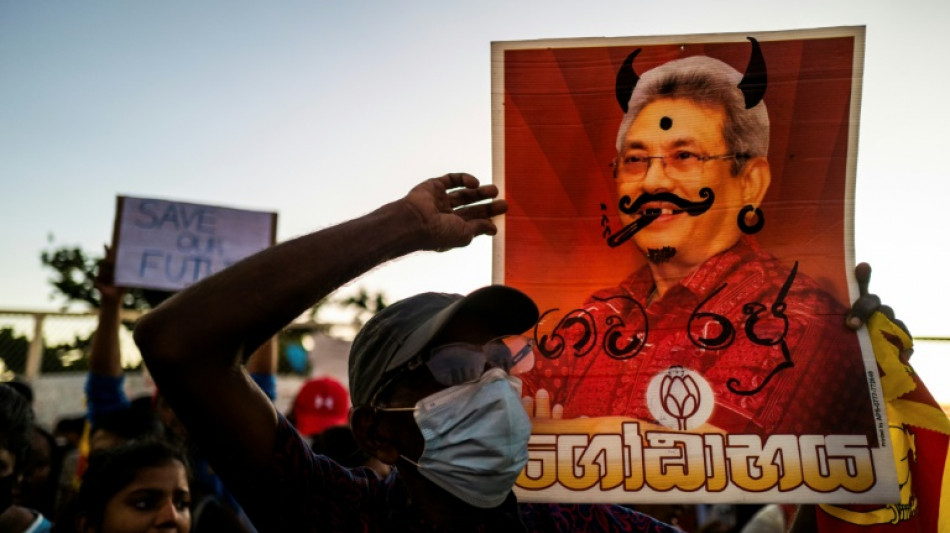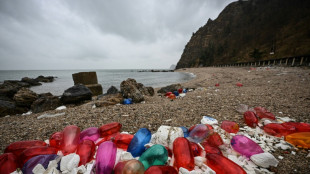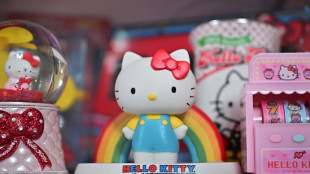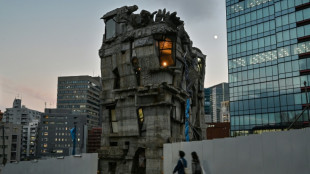

Sri Lanka leader trims cabinet of relatives ahead of IMF talks
Sri Lanka's embattled leader dropped two of his brothers and a nephew from his cabinet Monday, following public anger over the ruling family's mismanagement of a crippling economic crisis and calls for his resignation.
President Gotabaya Rajapaksa has presided over the island nation's most painful downturn in memory and his government is preparing for imminent bailout talks with the International Monetary Fund.
Dozens of lawmakers have turned against the administration and opposition parties have rebuffed invitations to join a unity government from the president, who insists he will remain in office to guide Sri Lanka through the crisis.
Huge protests have nonetheless demanded Rajapaksa stand down, including tens of thousands of people camped outside his seafront office for more than a week.
The new cabinet retains Prime Minister Mahinda Rajapaksa, Gotabaya's older brother and the head of Sri Lanka's ruling clan, while leaving out eldest sibling Chamal and younger brother Basil, the former finance minister.
Mahinda's eldest son Namal, who ran the sports ministry and had been touted as a future leader before the crisis, was also dropped.
The 21-member cabinet is seven people fewer than its predecessor, which resigned en masse two weeks ago in response to public outrage over nepotism and corruption.
Ministers are entitled to several SUVs, a large contingent of bodyguards and unlimited fuel, as well as state housing and entertainment allowances.
New finance minister Ali Sabry led a delegation to Washington over the weekend to open talks with the International Monetary Fund from Tuesday, officials said.
Sri Lanka is seeking three to four billion dollars from the IMF to overcome its balance-of-payments crisis and boost depleted reserves.
- Fuel costs jump again -
Alongside the acute shortages, Sri Lanka is also facing record inflation and lengthy electricity blackouts, as the government has run out of foreign currency to import fuel.
Lanka IOC, a petrol retailer which accounts for a third of the local market, announced yet another steep hike in fuel costs on Monday to account for the collapse in value of the local currency.
The cost of diesel, the fuel most commonly used for public transport, has risen by 138 percent since the start of the year while petrol prices have nearly doubled.
The government last week announced a default on Sri Lanka's $51 billion foreign debt and the Colombo Stock Exchange has suspended trading to prevent an anticipated market collapse.
Rajapaksa's parliamentary majority has been thrown into question after former allies deserted the ruling coalition.
The opposition has said it will attempt to topple the government through a no-confidence vote in the coming weeks.
Monday marked the tenth straight day of protests outside Rajapaksa's office, with demonstrators establishing a protest camp that they say will continue until the leader stands aside.
Activists shone digital projections on the office denouncing corruption and demanding the president "go home", prompting police to hold up large screens to block the light beams.
H.Alejo--ESF




